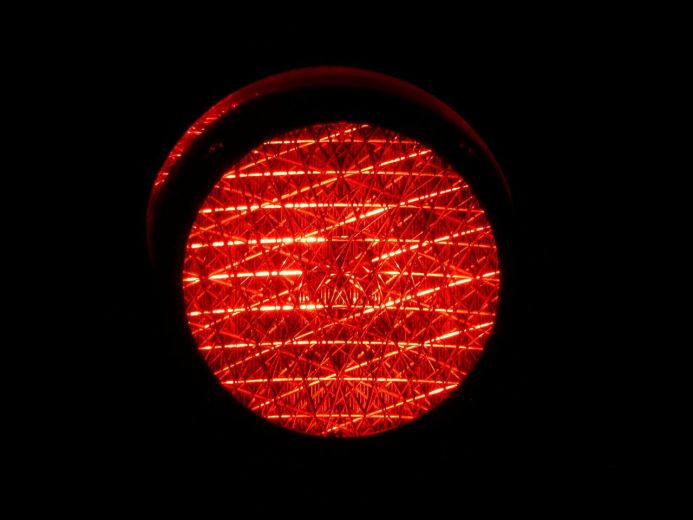Nearly half of the 2,498 drivers (46%) surveyed by the RAC said it should take no more than three seconds to get going on green, with a third (35%) thinking between four and six seconds is a reasonable time. A relaxed 7% are prepared for others to take as long as they like to pull away.1
While the overall level of frustration felt about drivers who are slow to move off when the lights change is evenly split with 46% saying they get annoyed and 54% saying it doesn’t bother them, the younger the driver the more likely they are to be irritated.
The RAC suspects this might, however, be different if they were one of the 44% who incredibly say they have been kept waiting for more than 15 seconds by drivers who have failed to notice a traffic light has gone green as that’s often long enough for lights to change to red again.
What’s more, it’s still the case that most drivers (64%) have been left waiting for 10 or more seconds – that’s more than the time it takes for world record holder Usain Bolt to react to the starter’s gun and run 100 metres.
Men, generally, are more likely to be frustrated by other drivers who are slow to react to lights going green than women (50% v 41%). Drivers from Yorkshire and the Humber region are the most impatient in the UK with 55% confessing to getting annoyed by ‘slow coaches’ at traffic lights, compared drivers in Wales who are the most accepting with just 34% getting annoyed.
Statistically speaking, those who get the most annoyed when others are slow to react to the lights turning green are male drivers aged between 17 and 34 with a huge 64% saying they get frustrated.
- Petrol and diesel prices from across the UK - RAC Fuel Watch
- RAC Route Planner
- New Highway Code Rules - what do you need to know?
- More motoring news
Almost a third (17%) say they regularly don’t manage to get through a set of traffic lights due to drivers in front being too slow to move off. Seventy-five per cent say this happens to them occasionally.
When questioned about why other drivers are slow to pull away at the lights 72% said some people just don't pay enough attention when waiting for them to change.
More than four in 10 (43%), however, believe those who do this are inconsiderate as fewer drivers are able to get through before the green lights go red again. A similar proportion (40%) blame the lack of awareness on drivers who are checking their handheld phones illegally.
RAC spokesman Simon Williams said: “While three seconds is obviously a very short time, anything longer than this can start to seem like an eternity when you desperately want to get through a set of traffic lights and the person in front is taking forever to get going. When you think that some lights only stay green for 15 seconds, this severely limits the number of vehicles that can get through before red comes up again, and this in turn makes jams – and potentially even air pollution – worse.
“The fact this is such a common issue means that too many drivers – for whatever reasons – clearly aren’t paying enough attention to what’s going around them when they’re stationary at traffic lights. As well as increasing journey times, this could have a road safety implication – particularly when people suddenly realise the lights have changed and then hurriedly pull away without properly checking their mirrors and making sure everything is clear around them.
“While our findings back up the old saying about the ‘impatience of youth’ with drivers under 35 being the most likely to get annoyed at those who cause unnecessary delays at traffic lights, it’s also the case that more drivers need to pay attention to the lights and not use the time to daydream or worse to check their handheld phones illegally. Just being ready to go could save others lots of time at the wheel, not to mention keeping some drivers’ blood pressure down.”
1 The RAC surveyed 2,498 drivers as part of its Driver Opinion Panel

Hurry! Offer ends 15/05/24, 7am.
*Use code SAVE33 on Extra and Complete cover for 1 vehicle or person. New customers only. Ends 15/05/24, 7am. ^£7.00 for Basic cover, not in sale.











